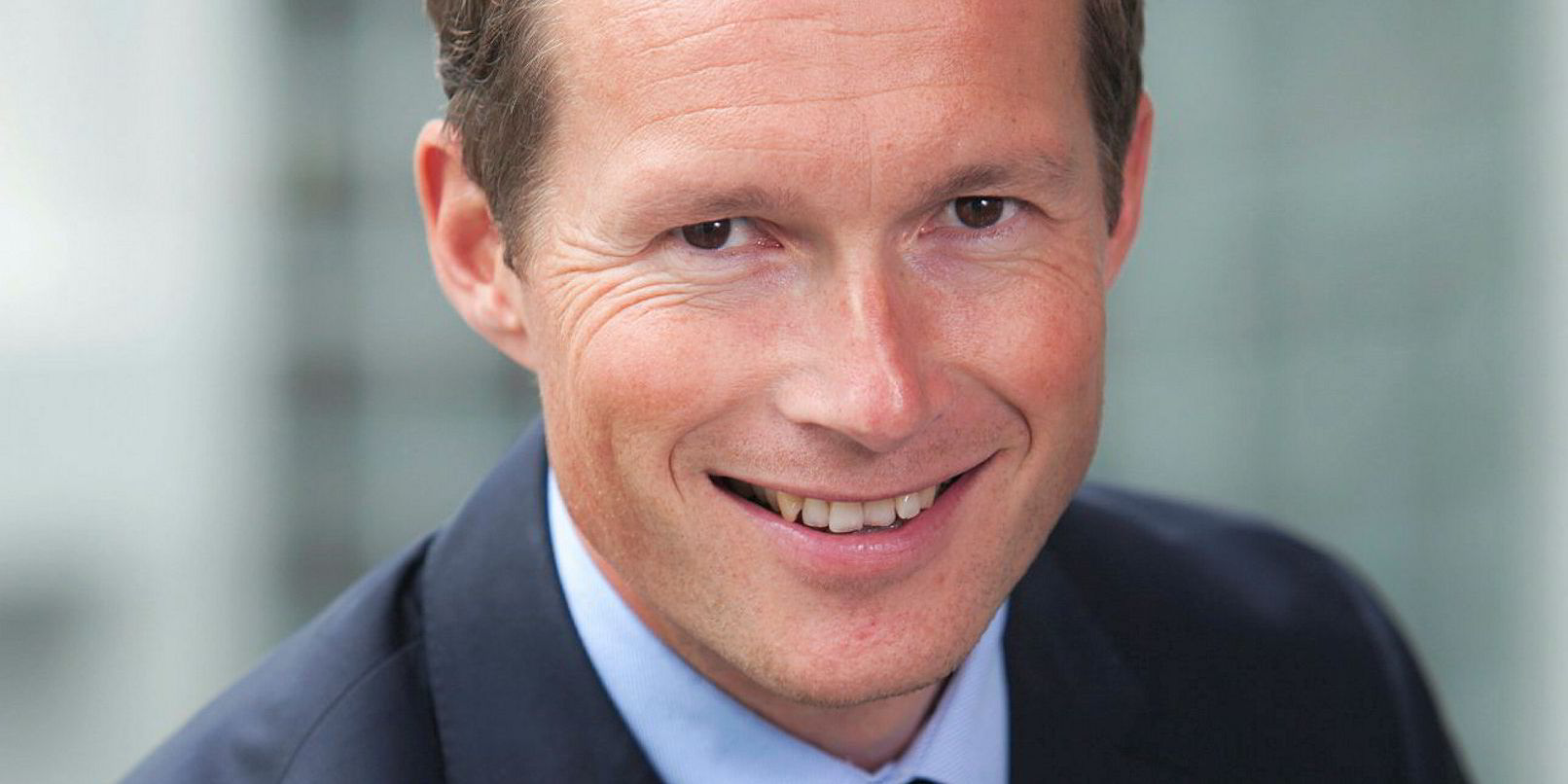A strengthening global economic climate is expected to support improved shipping markets during the next couple of years, executives at Nordea believe.
And should the “greatest financial experiment in history” pay off, the demand could be set fair for a longer period supported by a strong global economy, leading figures at the bank believe.
Hans Christian Kjelsrud, Nordea’s global head of shipping, offshore and oil services, says the maritime world has a mixed scorecard for 2017. But he stresses there are reasons for optimism in key markets during the next 12 to 24 months.
Speaking to TradeWinds on the sidelines of the Nordea Markets forum in London, Kjelsrud explained shipping demand growth is forecast at between 3% and 4% in 2017. A similar figure is projected for 2018.
“On the supply side we are down to the lowest orderbook we have seen for a decade or so,” he said. “The combination of that should provide a better balance in the freight market.”
Kjelsrud is less optimistic for a quick turnaround in the offshore drilling and support vessel markets, given what he calls substantial overcapacity. “Offshore spending has come down and we start to see it flattening out,” he said. “But we believe it [a recovery] is not happening next year — probably late 2019 or early 2020.
“Right now, you have somewhere between 50% and 60% utilisation and to start to drive day rates you need to get up into the 80s.”
Thorodd Bakken, head of corporate and investment banking at Nordea Norway, says that business in the wider portfolio is seeing notably higher activity levels.
This is a result of GDP growth, general economic improvement in the Nordics and the US, and a stabilising of the oil price at between the high $50s and low $60s.
“We are in the middle of the largest financial experiment in world history,” Bakken said in an interview at the forum. “Everything is helped by central banks fuelling the economy.”
He says the world economy is “still enormously supported by the central banks”, a situation which seems to be working.
“The big question is how you then return to a normal situation where it’s not fuelled by the central banks, where we have normalised rates, when the ECB [European Central Bank] stops buying corporate bonds,” he said.
“I think the experiment is working for now. And if it works, then I think we are in for a long ride, because there is more liquidity in the world than ever, there are lower interest rates, there is more debt to support it.
“They big question is how you untangle this experiment into a normal situation without disrupting again.”
Bakken says his division is “absolutely open for business” and is supporting its long-term clients while focusing on those a little closer to home.
“We like the solid clients we are close to that we know,” he says. “It’s a people business, it’s a relationship business. Although the world is going more digital and more stuff is automated, in the end it’s about people meeting and making agreements.”




